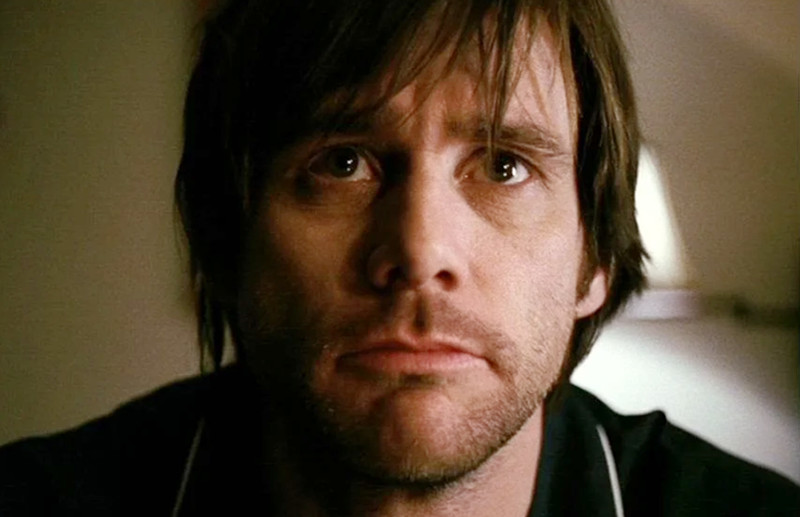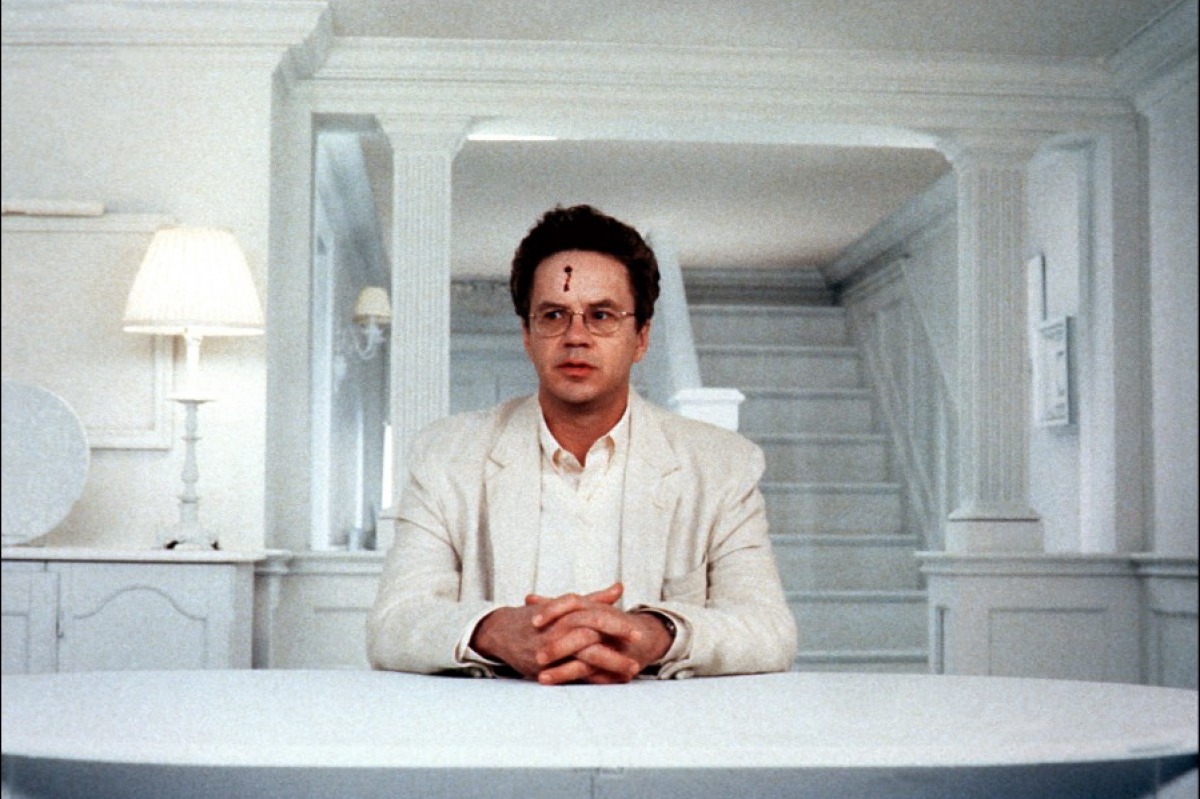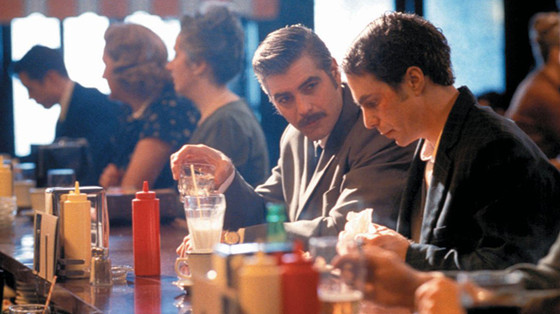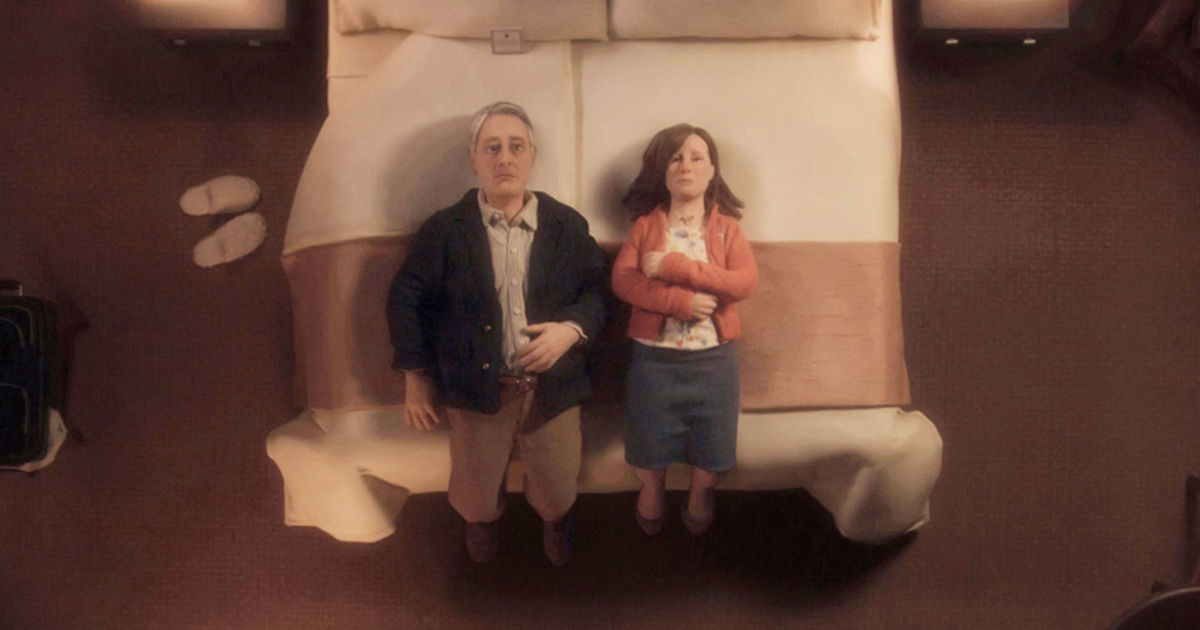
Whether it’s stepping into the mind of John Malkovich, recreating New York City in an empty warehouse or writing himself into a movie, Charlie Kaufman has churned out some of the most thought-provoking screenplays in recent memory. Love him or hate him, the truth is none of his peers have built their own mythos around their persona the way good ol’ Charlie has in the past twenty-five years. In that time, he’s grappled with lofty questions about the human condition, mortality and art, wrestling with his own philosophical ruminations in surreal, meta-narratives that seem to defy every storytelling rule we’ve come to expect.
And yet, it’s hard to pin down exactly what makes a Charlie Kaufman script, well, unmistakably his. Watching his work can feel a bit like putting your brain on trial. His films can be spiritually liberating or utterly depressing according to the mileage of the viewer, but in any case, will provide valuable food for thought. His critics have long crucified him for his self-aggrandizing vanity and misanthropy, while his staunchest of fans argue his vulnerabilities and flaws are precisely what sets him apart as a writer.
Be it as it may, he’s remained one the few remaining ‘auteurs’ who makes a seismic event out of every project bearing his name. Fortunately, it seems Kaufman is far from being idle and already has his hands full on several projects. Word has spread around the industry that he will follow up his Netflix’ psycho-thriller with another adaptation, the 1994 novel ‘The Memory Police’, while his long-gestating ‘IQ83’ script is being developed as a limited series for HBO. As we bide our time until his next batch of brain-melters knocks our socks off, let’s take a look at all of his films to date.
8. Human Nature (2001)

Riding high on the wings of success after his first screenplay (‘Being John Malkovich’), Kaufman stripped everything down to the basics and examined the primal roots of our psyche in ‘Human Nature’. This marked the first of two collaborations between him and French director Michel Gondry, a partnership that would prove far more fruitful in ‘Eternal Sunshine of Spotless Mind’ but still left us with an intriguing—if widely forgotten—entry in his oeuvre.
The sundry cast of ‘Human Nature’ includes Patricia Arquette as a woman saddled with a hormonal imbalance that makes her grow an exorbitant amount of hair, Tim Robbins as a methodical, borderline obsessive scientist and Rhys Ifans as a grown man who was raised as an ape and thinks himself as such, and who becomes the latest social experiment for the former two. Much like the rest of his films, Kaufman employs an outlandish premise as means to poke fun at our social norms and explore human behavior with a magnifying glass. ‘Human Nature’ has some bright moments that convey how our civilized, social conducts inhibit our sexual desires, and debates whether a happy medium between both truly exists.
On many other fronts, ’Human Nature’ echoes the rest of Kaufman’s work as a nice microcosm of some of his signature themes and philosophical musings. But within that framework, one can’t help but feel that the end result feels far more vulgar, uninspired and rough around the edges than anything else he’s churned out. As such, this film’s reserved for hardcore completionists—steer clear of it if you don’t consider yourself one.
7. Confessions of a Dangerous Mind (2002)

This is the closest Charlie Kaufman has come to being a hired gun, and unsurprisingly, the director has disavowed the film ever since. At first glance, the biopic of Chuck Barris, a popular ’60s game show host who claims to have been a part-time C.I.A. undercover hitman, seems like the type of wild source material that would be right up his alley. But apparently, first-time director George Clooney was unconvinced by Kaufman’s script, which led to several rewrites where they both went back and forth to define the overall tone of the movie. The result we got probably fell somewhere in between—far more conventional than Kaufman would have hoped for, but still a tad more adventurous than advertised. And though it lacks the usual edge that we’ve grown to expect with his work, there’s glimmers of Kaufman’s off kilter touch still oozing out despite being neutered in the writer’s room.
Credit where credit is due though: the cast valiantly makes the most out of the pulpy script they’re given, especially Sam Rockwell as the tormented lead role. If you can leave your Kaufman-y expectations at the door, watching ‘Confessions of a Dangerous Mind’ can prove to be a fairly entertaining—if somewhat innocuous—endeavor and, in all likelihood, the most accessible film featured in the present list.
6. Anomalisa (2015)

To no one’s surprise, Charlie Kaufman’s surrealism lends itself perfectly to the boundless possibilities that animation provides. In fact, his first foray into stop-motion gifted us with the most Kafkaesque entry in his catalog as well as a haunting exploration of loneliness that couldn’t have been realized in any other visual medium.
‘Anomalisa’ is told through the perspective of Michael (David Thewlis), a jaded customer-service inspirational speaker who’s staying the night at Cincinnati’s Hotel Fregoli—a name that gives us a subtle hint at his mental disorder. The Fregoli delusion is the deranged belief that everyone around you is the same person in disguise, be it a relative or an acquaintance. Right from the outset, it’s easy to notice something’s askew with Michael’s point of view—everyone besides him looks and sounds exactly the same. That is, until he meets Lisa, a lively young woman who single-handedly brightens his sterile existence and keeps his midlife crisis (momentarily) at bay.
Michael is the quintessential Kaufman-esque antihero: an obnoxiously self-centered, manipulative, self-destructive man who’s so disconnected from the real world that he can’t see any further than the end of his nose. Granted, Michael is incontrovertibly problematic and certainly not a character Kaufman expects us to root for or even pity. But as a vessel for frail masculinity, we should at least be able to abstract his flaws, and if not relate to his pain, empathize with him at some human level.
‘Anomalisa’ is a film that stares into the abyss and isn’t afraid of what it’ll find staring right back. It may be dense, emotionally draining and borderline insufferable, but no other Kaufman film has ever warranted as much introspection and soul-searching as this one.
5. I’m Thinking of Ending Things (2020)

Kaufman’s latest project is something of an acquired taste that has rapidly become his most polarizing one yet—and for good reason. Filled to the brim with symbolism, obtuse allegories, self-references and double meanings, ‘I’m Thinking of Ending Things’ is a film that uncoils like a fever dream and that rests entirely upon its final payoff to win you over. Not that it doesn’t deliver—the last ten minutes alone are worth the headache. But its puzzle box structure works twofold—creating a remarkably layered narrative that rewards repeated viewings more than any other Kaufman film, but which will inevitably alienate those viewers who aren’t willing to go through the wringer and endure the two-hour long metaphysical maze that precedes it.
The larger swath of the story is presented through a sort of heightened reality where the boundaries between truth and fiction blur together, thrusting us into the troubled headspace of an aging janitor as we process scattered figments of his deteriorating memory. With misdirection and deliberate inconsistencies as his biggest allies, Kaufman keeps his cards close to his chest, throwing us curveballs at every turn and making us double-guess every bit of information we’re given. Hardcore devotees of the director will surely know better than to take any character merely at face value, as they’re often stand-ins for broad, larger-than-life ideas and existential musings. This film proves to be no exception, with almost every line of dialogue aimed at plumbing the depths of the human psyche.
One can be tempted to misconstrue ‘I’m Thinking of Ending Things’ as an impenetrable abstraction and not much else. But that would gloss over the way the film addresses our tendency to construct stories in our heads as an emotional buffer against life that helps us cope with our past regrets, thwarted dreams and lingering fears.